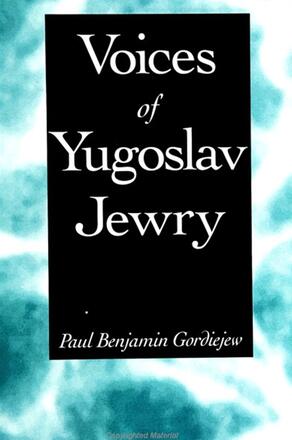
Voices of Yugoslav Jewry
Alternative formats available from:
Emphasizes the role of history in shaping Yugoslav Jewish identity.
Description
Voices of Yugoslav Jewry emphasizes the role of history in shaping Yugoslav Jewish identity. World War II imposed irreversible effects on this population of Jews, leaving them with an acute sense of disjuncture and fragmentation. This once-unified Jewish community lost its secure place in the politico-symbolic order of a single multiethnic state, and the surviving local Jewish communities, which are now a part of new states, face the task of refashioning their identities once again. The process of creating the new Yugoslavia has allowed for the emergence of a new Jewish collective voice, one that blended harmoniously with the emerging voice of Tito. This collective voice manifested itself by using language, material culture, and dramaturgical performances in ways that exhibited high public integration with the symbolic order of the new state. In searching for the voices of individuals and listening to them closely, a wide range of diverse individual experiences and ways of constructing meaningful Jewish selves can be heard. It is these voices that constitute the core of the book.
Reviews
"…we owe a major debt of gratitude to Paul Gordiejew for this remarkably insightful study. " — Slavic Review
"Gordiejew certainly captures the complexity of community transformation in the midst of the ethno-nationalist crossfire … an excellent description of Jewry living within the fission and fusion of the ethnic republics which comprise the Balkans. " — SHOFAR
"This book provides, for the first time, a comprehensive portrait of post-war Yugoslav Jewry, and as such is an extremely valuable contribution to the literature on Jewish ethnicity. " — Guy H. Haskell, Emory University